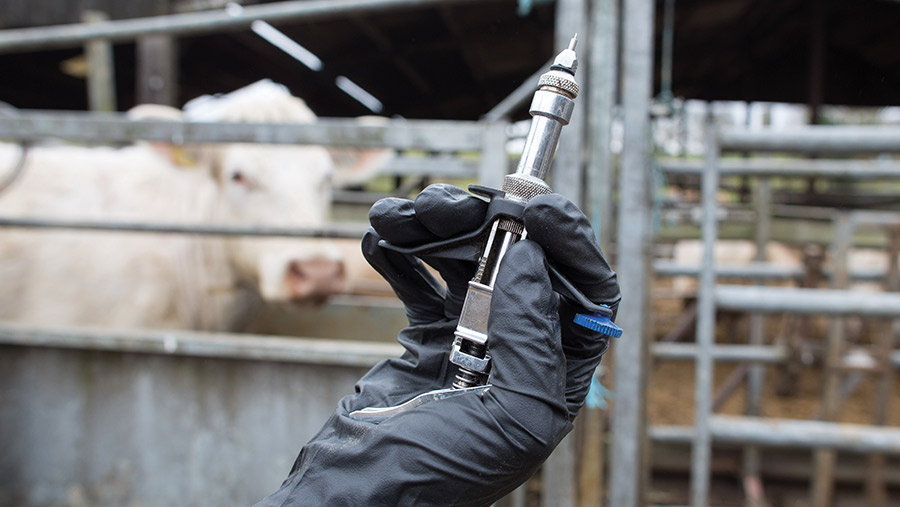Bovine TB cattle vaccine field trials move to next phase
 © Tim Scrivener
© Tim Scrivener A deployable vaccine and new diagnostic test to tackle bovine tuberculosis (bTB) in cattle herds has moved a step closer, according to the UK government.
Defra says field trials for its CattleBCG vaccine and the Detect Infected among Vaccinated Animals (Diva) skin test have moved to the next phase.
The second phase of the field trials will assess the safety of the vaccine and the safety and performance of the Diva test in vaccinated cattle.
See also: TB cattle vaccine on target for 2025 rollout says chief vet
Until now, laboratory studies have indicated that the vaccine and Diva test – which can distinguish between infected and vaccinated animals – are safe and that the test performs well, under controlled Animal and Plant Health Agency (Apha) facility environments.
The field trials are taking place on commercial livestock farms across England and Wales and these are due to be completed in 2023.
Phase two will involve at least five farms with 600 animals participating, 300 of which will be vaccinated with CattleBCG, whilst the remaining half will receive a placebo.
If the second phase is successful, Defra says it will be closer to being able to vaccinate cattle against this endemic disease.
‘Significant milestone’
Dr Phil Hogarth, Apha’s lead scientist for TB said: “This next step represents a significant milestone, building upon many years of research, and Apha will continue to be led by science, and work tirelessly in the fight to eradicate this disease.”
It is hoped that the combination of CattleBCG vaccine and the Diva test will be deployable in the next few years, as early as 2025, adding significant tools to those currently available.
Wildlife campaigners hope the successful introduction of a cattle vaccine and Diva test could see the end of the government’s controversial badger-culling policy in England.
The first phase of trials started in England in July 2021, which focused on the safety and performance of the Diva test in unvaccinated animals.
The test works by identifying proteins present in infected animals that are not present in vaccinated cows, allowing the cattle vaccine to be used alongside.
Performed on 10 farms with 524 participating animals, phase one was completed in May 2022 and analysis of the results is in progress.
‘Substantial progress’
England, Scotland and Wales’s chief veterinary officers said in a statement: “We are making substantial progress in developing an additional tool to help eradicate this disease with the new cattle vaccine and Diva skin test – and are very grateful to the vets and farmers taking part for their efforts in making this work on the ground.
“If this next phase is successful, this project takes us one step closer to a vaccine to be used in conjunction with other measures to tackle this insidious disease, which impacts livestock farmers across the globe.”
BTB is one of the most difficult and intractable animal health challenges that the UK faces today and costs taxpayers in England around £100m every year.
More than 38,000 cattle in England and Wales were slaughtered in 2021 to tackle the disease.
- Contract research organisation Eville & Jones is seeking to work with interested farmers and veterinary practices to support the next phase of the field trials on suitable farms that meet the inclusion criteria. If you believe you have a suitable farm, please email Dr Lindsay Heasman at lindsay.heasman@eandj.co.uk.
